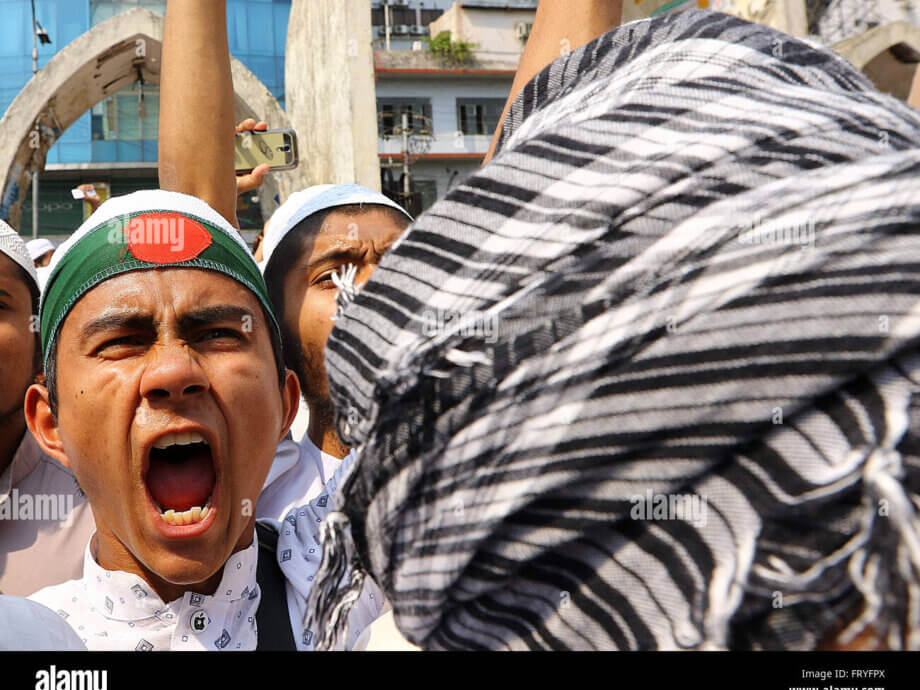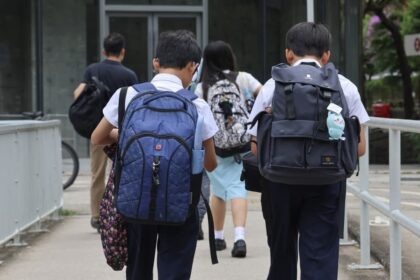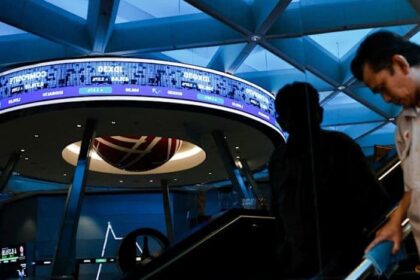Hefazat-e-Islam’s Protest Against the UN Human Rights Office in Dhaka
On a recent afternoon in Dhaka, the influential Islamist coalition Hefazat-e-Islam staged a public protest against the Bangladeshi government’s decision to allow the United Nations Office of the High Commissioner for Human Rights (OHCHR) to establish a presence in the capital. The demonstration, held at the north gate of Baitul Mukarram National Mosque, drew attention to a growing debate over international involvement in Bangladesh’s human rights landscape and the perceived impact on national sovereignty and religious values.
- Hefazat-e-Islam’s Protest Against the UN Human Rights Office in Dhaka
- Why Is the UN Opening a Human Rights Office in Dhaka?
- Hefazat-e-Islam’s Objections: Sovereignty, Values, and Security
- Background: Human Rights in Bangladesh
- Government Response and Political Context
- Understanding Hefazat-e-Islam: Influence and Agenda
- Broader Implications: Human Rights, Sovereignty, and International Relations
- In Summary
Hefazat-e-Islam, a coalition of various Islamist groups, has long been a vocal player in Bangladesh’s socio-political scene. Their opposition to the UN rights office is rooted in concerns about external influence, the protection of Islamic values, and the broader implications for Bangladesh’s internal affairs.
Why Is the UN Opening a Human Rights Office in Dhaka?
The United Nations Office of the High Commissioner for Human Rights (OHCHR) is the principal UN entity responsible for promoting and protecting human rights globally. The decision to open an OHCHR office in Dhaka follows years of international concern over Bangladesh’s human rights record, including allegations of extrajudicial killings, enforced disappearances, restrictions on freedom of expression, and crackdowns on political opposition.
Bangladesh has faced increasing scrutiny from international human rights organizations and Western governments. The UN and other bodies have repeatedly called for independent investigations into alleged abuses and for greater protection of civil liberties. The establishment of an OHCHR office is intended to provide technical assistance, monitor the human rights situation, and support the government in fulfilling its international obligations.
For the Bangladeshi government, allowing the OHCHR to set up an office is seen as a step toward greater transparency and engagement with the international community. However, this move has not been without controversy, especially among groups who view it as an infringement on national sovereignty.
Hefazat-e-Islam’s Objections: Sovereignty, Values, and Security
At the heart of Hefazat-e-Islam’s protest are concerns that the UN rights office could undermine Bangladesh’s Islamic values, social stability, and national security. The group argues that international human rights frameworks often reflect Western ideologies that may not align with the country’s religious and cultural traditions.
During the rally, Hefazat Joint Secretary General Mamunul Haque voiced these concerns, stating that the government’s decision was made without sufficient public consultation and that it “goes against public sentiment and the spirit of independence.” He further claimed:
“The so-called human rights of the United Nations are actually tools of Western ideology, which go against Islam and humanity.”
Hefazat leaders also warned that the presence of the OHCHR could open the door to foreign interference in Bangladesh’s internal affairs, potentially threatening the country’s sovereignty. They demanded the immediate cancellation of the decision and called for a more active role for local, independent rights organizations in monitoring the human rights situation.
Background: Human Rights in Bangladesh
Bangladesh’s human rights record has been a subject of concern for decades. Reports from organizations such as Human Rights Watch and Amnesty International have documented patterns of extrajudicial killings, enforced disappearances, arbitrary arrests, and restrictions on freedom of speech and assembly. The government has often denied these allegations, arguing that security operations are necessary to maintain law and order, especially in the face of terrorism and political unrest.
In recent years, the government has also faced criticism for its handling of protests, treatment of journalists, and the use of digital security laws to suppress dissent. The international community, including the United Nations, has urged Bangladesh to ensure accountability for abuses and to protect the rights of all citizens.
Role of Local Rights Organizations
Hefazat-e-Islam’s call for local organizations to take a more active role in human rights monitoring reflects a broader debate about the effectiveness and independence of domestic rights groups. While Bangladesh has a vibrant civil society, many local organizations face significant challenges, including legal restrictions, harassment, and limited resources. Some activists argue that international support is essential to bolster their efforts and ensure impartial investigations into abuses.
Government Response and Political Context
The Bangladeshi government has defended its decision to allow the OHCHR office, emphasizing its commitment to upholding human rights and engaging with the international community. Officials have argued that the presence of the UN office will help improve transparency and provide technical assistance in areas such as legal reform, capacity building, and the protection of vulnerable groups.
However, the move comes at a politically sensitive time. Bangladesh is preparing for national elections, and the government faces criticism from both domestic and international actors over its human rights record and democratic credentials. Some analysts suggest that the decision to allow the OHCHR office may be an attempt to demonstrate openness and address international concerns ahead of the polls.
Opposition and Civil Society Reactions
Reactions to the government’s decision have been mixed. While Hefazat-e-Islam and other conservative groups have condemned the move, many human rights activists and opposition politicians have welcomed it as a positive step toward greater accountability. Some have called for the government to go further by ensuring the independence of the judiciary, repealing restrictive laws, and protecting the rights of minorities and dissenters.
International organizations have also expressed support for the establishment of the OHCHR office. In a statement, a UN spokesperson said:
“The opening of an OHCHR office in Dhaka will enable closer cooperation with the government and civil society to address human rights challenges and support Bangladesh in meeting its international obligations.”
Understanding Hefazat-e-Islam: Influence and Agenda
Hefazat-e-Islam is one of Bangladesh’s most prominent Islamist coalitions, drawing support from religious seminaries, clerics, and conservative segments of society. The group has a history of mobilizing large-scale protests on issues related to religious values, education, and perceived threats to Islam.
In recent years, Hefazat has played a significant role in shaping public discourse on issues such as blasphemy laws, the role of women in society, and the secular character of the Bangladeshi state. The group’s influence extends beyond religious matters, often intersecting with broader political debates about national identity, sovereignty, and the role of foreign actors in domestic affairs.
Previous Protests and Political Clout
Hefazat’s ability to mobilize supporters has made it a force to be reckoned with in Bangladeshi politics. The group has previously organized mass rallies demanding changes to school curricula, the enactment of stricter blasphemy laws, and the protection of Islamic symbols. Its leaders have also engaged in dialogue with successive governments, sometimes securing concessions on policy issues.
The current protest against the OHCHR office reflects Hefazat’s ongoing efforts to assert its influence and shape the national conversation on human rights, sovereignty, and religious values.
Broader Implications: Human Rights, Sovereignty, and International Relations
The controversy over the UN human rights office in Dhaka highlights the complex interplay between domestic politics, international norms, and national identity. For many Bangladeshis, the issue is not simply about human rights, but about who gets to define and protect those rights within the country’s unique cultural and religious context.
Supporters of the OHCHR office argue that international oversight is necessary to ensure accountability and protect vulnerable groups. They point to Bangladesh’s commitments under international treaties and the need for independent monitoring in a context where domestic institutions may be constrained.
Opponents, including Hefazat-e-Islam, see the move as an encroachment on sovereignty and an imposition of foreign values. They argue that Bangladesh should be allowed to address its own challenges without external interference, and that local organizations are better placed to understand and protect the country’s interests.
Regional and Global Context
Bangladesh is not alone in facing debates over international human rights oversight. Across South Asia and beyond, governments and civil society groups grapple with questions about the role of the UN and other international actors in domestic affairs. The balance between respecting national sovereignty and upholding universal human rights remains a contentious issue in global politics.
The outcome of the current debate in Bangladesh could have implications for other countries in the region, shaping how governments engage with international organizations and how civil society advocates for change.
In Summary
- Hefazat-e-Islam has protested the government’s decision to allow the UN human rights office in Dhaka, citing concerns over sovereignty, Islamic values, and national security.
- The UN Office of the High Commissioner for Human Rights aims to support Bangladesh in addressing human rights challenges and fulfilling international obligations.
- The move has sparked debate among political, religious, and civil society groups, reflecting broader tensions over international involvement in domestic affairs.
- Bangladesh’s human rights record remains under scrutiny, with calls for greater accountability and protection of civil liberties.
- The controversy highlights the ongoing struggle to balance national identity, religious values, and international norms in a rapidly changing society.












